New Delhi9 minutes ago
- copy link
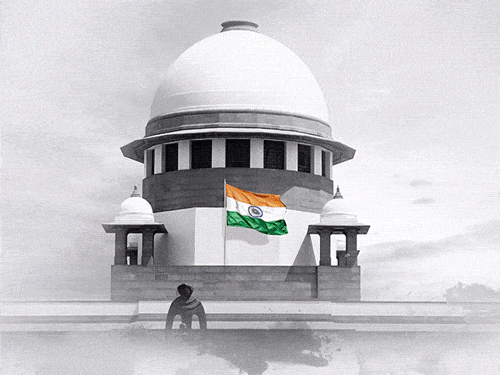
Today, petitions related to the restoration of full statehood of Jammu and Kashmir will be heard in the Supreme Court. Earlier, in the hearing held on August 14, the court had sought a written reply from the central government on this issue within eight weeks.
Referring to the Pahalgam terrorist attack in April, a bench comprising Chief Justice of India (CJI) BR Gavai and Justice K Vinod Chandran had said that the ground reality of Jammu and Kashmir and terrorist incidents like Pahalgam cannot be ignored.
In fact, after the removal of Article 370 on August 5, 2019, the Central Government had created a Union Territory. After this the Centre’s decision was challenged in the Supreme Court. In December 2023, the Supreme Court had considered it right to remove Article 370 from the state and abolish the special status.
Then Solicitor General Tushar Mehta had said that the Central Government will restore the state status of Jammu and Kashmir. The government is working on the promise of restoring statehood after the elections.
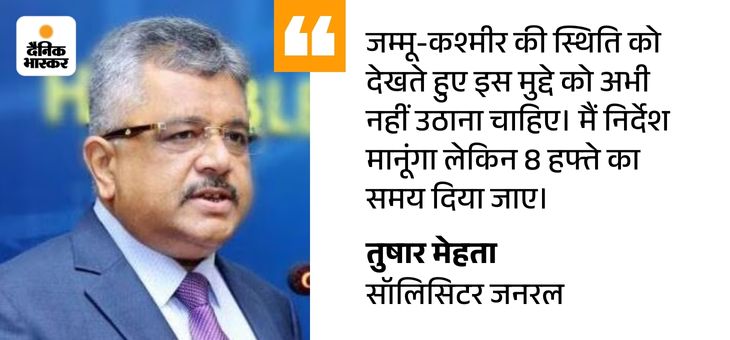
August 14: Court said- ground reality will be seen
In the last hearing, the CJI had said that the court will not proceed further without the government’s response. While taking the decision, the security situation and the ground situation will also be considered, the decision will not be taken only on the constitutional debate. The court has given the government time to reply in 8 weeks.
Senior advocate Shankar Narayanan said that in the decision of December 11, 2023, the court had directed that elections should be held in Jammu and Kashmir by September 2024 and then statehood should be restored. But even after 21 months, no progress has been made.
Petitioner said- situation is normal in the state
These petitions were filed by Professor Zahoor Ahmed Bhat and socio-political activist Khurshid Ahmed Malik. He argued that the Assembly and Lok Sabha elections were held peacefully. It is clear from this that the security and democratic processes of the state are running smoothly.
But due to not getting the statehood back, the importance of the elected government there has diminished and it is also weakening the fabric of the federal structure.
Why was Section 370 removed
The Government of India decided to remove Article 370 on 5 August 2019. The government argued that this step was necessary for national unity, development and curbing terrorism. Section 370 gave special state status to Jammu and Kashmir, under which it had its own constitution and separate laws. Due to this, people from the rest of India could not buy land there nor become permanent citizens.
According to the central government, this section isolated the state from the mainstream and hindered development. Home Minister Amit Shah had said in Parliament that this provision promoted terrorism and gave rise to the idea of separatism in the Kashmir Valley.
By removing Article 370, the state was divided into two union territories, Jammu-Kashmir and Ladakh.
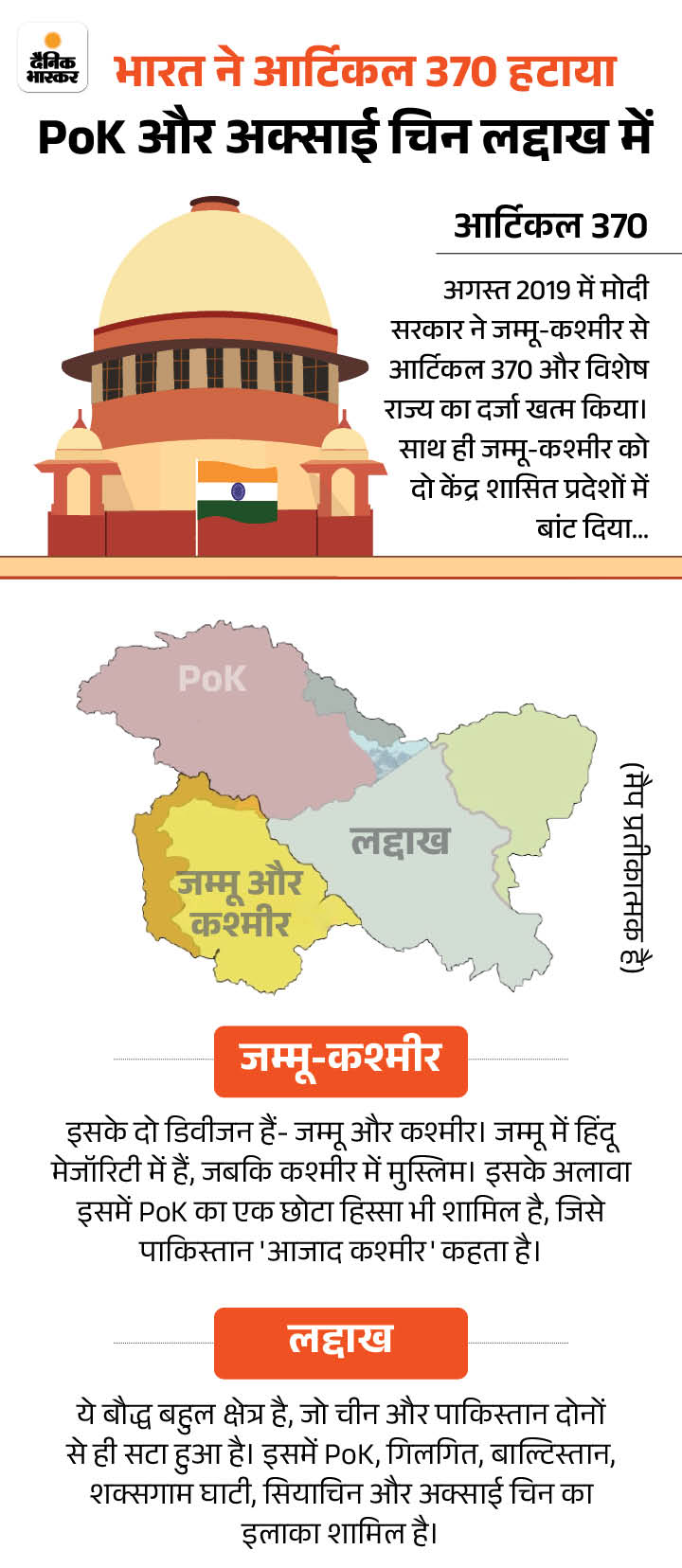
How to get full state status, understand in 3 points
- The proposal will be sent to the Central Government through the Lieutenant Governor. The further decision has to be taken by the Central Government. Only the Central Government can process changes in the Jammu and Kashmir Reorganization Act for the status of a full state.
- The state of Jammu and Kashmir was reorganized into two union territories under the Jammu and Kashmir Reorganization Act, 2019. Therefore, for the status of full state, changes will have to be made in the Reorganization Act by passing a law in the Parliament. These changes will be made under Section 3 and 4 of the Constitution.
- To grant statehood, approval of new legal changes will be required in the Lok Sabha and Rajya Sabha, that is, the proposal must be approved by the Parliament. After approval it will be sent to the President. After his approval, Jammu and Kashmir will get the status of a full state from the date the President issues the notification of this legal change.
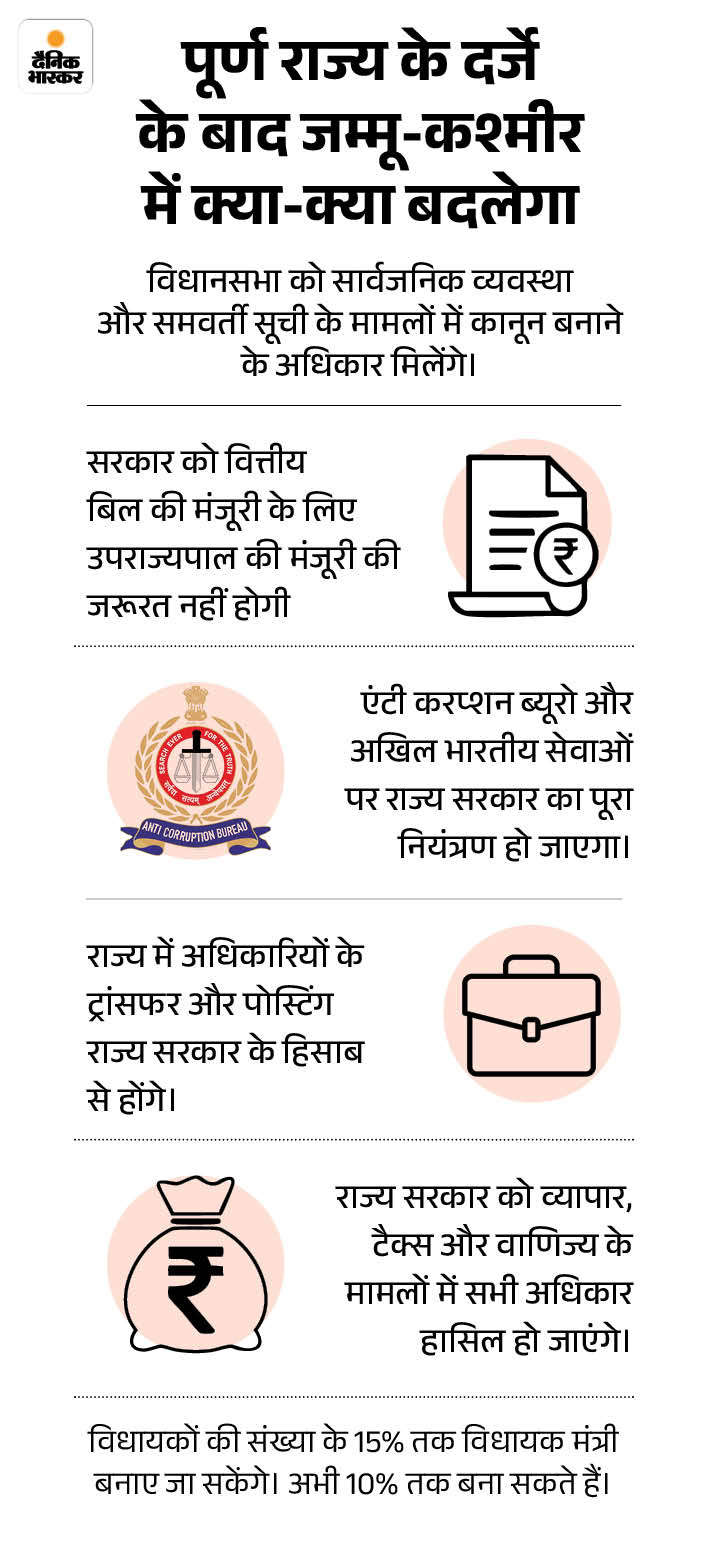
September, 2024: The first assembly elections were held in the state after the removal of Article 370.
The first assembly elections were held in the state after the abrogation of Article 370 in September 2024. After the abrogation of Article 370, assembly elections were held in the state for the first time last month. The results of the elections held in three phases came on October 8. In this, National Conference (NC) had emerged as the largest party. The party had got 42 seats. NC’s ally Congress won 6 seats and CPI(M) won one seat.
BJP became the second largest party with 29 seats. At the same time, PDP, which became the largest party in the 2014 assembly elections, got only 3 seats. Party chief Mehbooba Mufti’s daughter Iltija Mufti also lost from Bijbehara seat. In the last elections the party had won 28 seats.
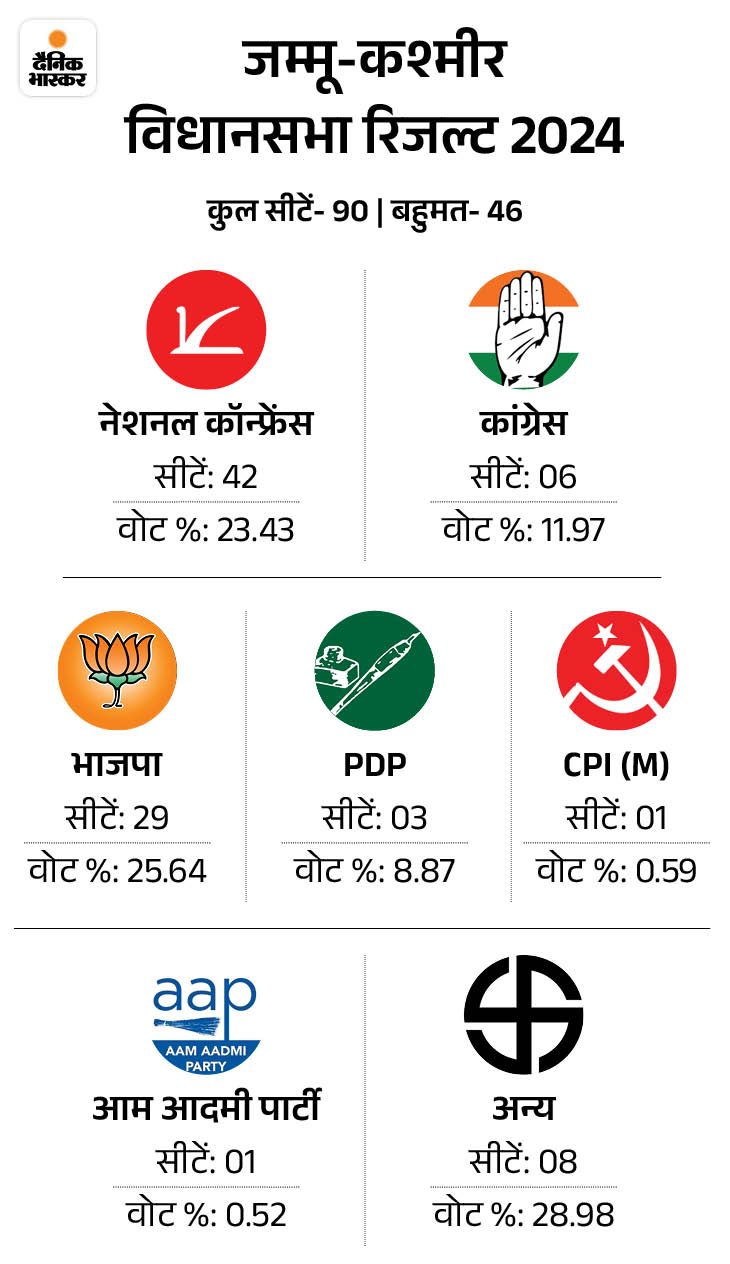

,
Read this news also…
After the removal of Article 370, terrorists shifted from the valley to Jammu, stone pelting reduced by 99%; Not a single Kashmiri Pandit will return
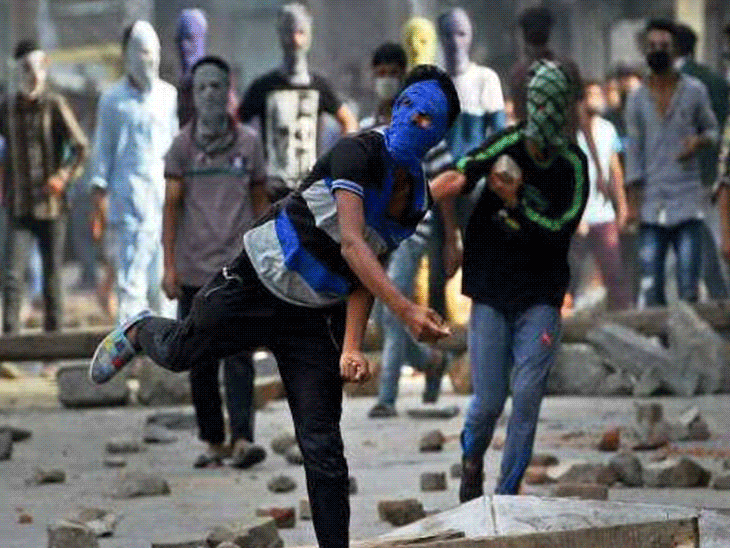
The special status of Jammu and Kashmir ended after Article 370 was removed in Parliament on 5 August 2019. Also the state was divided into two union territories, Jammu Kashmir and Ladakh. The government had claimed that this step would bring peace and prosperity to Jammu and Kashmir. Read the full news…



